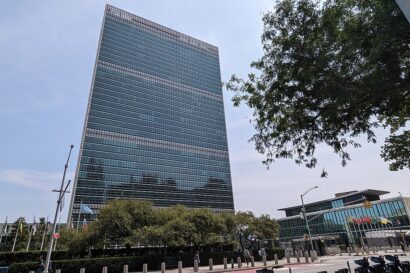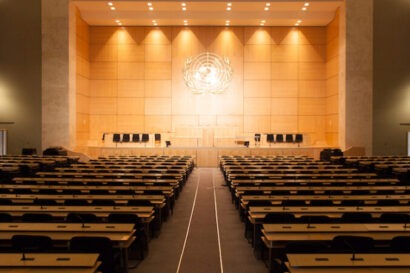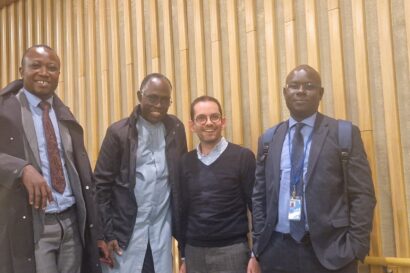Last week, 138 members of the OECD/G20 Inclusive Framework on Base Erosion and Profit Shifting released an Outcome Statement on the Two-Pillar Solution to Address the Tax Challenges Arising from the Digitalisation of the Economy. Pillar Two provides for a global minimum tax on the earnings of large multinational businesses to reduce tax competition and profit shifting. If enacted, multinational business in scope will be required to pay a corporate income tax of at least 15% in each of the jurisdictions in which it operates. The OECD estimates that this new tax will result in annual global revenue gains of around USD 220 billion, or 9% of global corporate income tax revenues.
Legal limitations
Will developing countries share in this Pillar Two revenue? The answer is: too often, no. One of the main reasons for this is that developing countries are subject to international agreements, private contracts, and national laws that will frequently prevent them from removing tax incentives promised to investors.
This is a significant problem, as 100 of the 138 countries listed in the OECD’s Inclusive Framework agreement are categorised by the World Bank and UNCTAD as developing countries. Characteristics of these countries is that they:
- Require significant foreign direct investment (FDI) to facilitate infrastructure and resource development
- Have implemented tax incentives to encourage FDI, and
- Have entered investment or trade agreements or private contracts that limit their ability to change national tax laws or policies.
For example, many developing countries have entered into tax agreements for large investment projects, either through special provisions in their domestic law or in investment contracts with foreign investors. Often these agreements contain tax incentives, including tax holidays that are locked in by fiscal stabilization clauses and protected by investment treaties. These agreements generally freeze any applicable tax measures so that no changes can be made that would impact an existing investment project, at least for a defined period.
If a developing country has entered into an agreement that provides protection to investors, any attempt to collect the Pillar Two tax may violate the agreement. It may also expose the country to costly international arbitration.
If the developing country does not collect the proposed minimum tax, Pillar Two provides that the home country of the corporate parent must do so, and the home country may keep the tax.
Hands tied
One of the most common types of treaties used to attract foreign investments are Bilateral Investment Treaties (BITs). These agreements are negotiated between governments and provide investors with significant guarantees and protections such as fair and equitable treatment. More importantly, BITs generally include a mechanism for resolving disputes between an investor and the host country through independent international arbitration.
In 2022 there were more than 2,500 BITs in force globally. The majority are with developing counties. Many include provisions that will limit the host country’s ability to impose a 15% minimum tax without violating the BIT and triggering investor rights. The literature describes the use of stabilization clauses in BITs with developing countries as widespread, especially in non-OECD countries.
As a result, the Pillar Two tax will be collected in the parent company’s home jurisdiction. For the developing country, it means both the loss of the benefit of providing the tax incentive and the Pillar Two tax revenue.
It is true that not all BITs are the same or provide the same investor rights. Some, notably those with developed countries, also include tax carveouts. But the evidence is clear that there are increasing numbers of claims by investors against developing countries for tax measures under BITs. These include challenges under umbrella clauses (that would protect fiscal stabilization agreements), or more general claims that the host country has violated its fair and equitable treatment obligations or expropriated investor assets. These treaty obligations provide ample room for an international arbitration body to review a new Pillar Two tax. And there are other BIT obligations a country might violate if it seeks to change the conditions upon which the investor relied when making the decision to invest.
Short term pain, long term gain?
Although in the long term, it is expected that a global minimum tax will raise tax revenues for all countries, and end what many consider to be harmful tax competition, in the short term, Pillar Two will operate to increase the tax revenue in countries where multinational parent companies are based. It will also remove the benefit of any tax incentives provided by developing countries. For these countries, this seems the worst of all possible outcomes.
Is this fair?
Perhaps if the government of the foreign parent agreed to return the windfall top-up tax they collect under Pillar Two to a developing country that is legally restrained from collecting it at source, the question would be easier to answer. But would the government of the parent corporation ever consider such a measure? The current political incentive for signing on to Pillar Two appears universally to be the millions that will be added to the tax revenue of developed countries. Foreign aid to developing countries has not been cited as a potential use for the windfall funds.
Meanwhile, global interest in the issue of Pillar Two and BITs seems low, and only a few organizations such as UNCTAD have acknowledged the potential problem. One reason may be because it is not seen as an EU problem. The EU ended its intra-Europe BITs in 2020. The potential conflict between Pillar Two tax and the more than 2,500 remaining BITs may therefore be of little consequence in the EU context.
Unfortunately, as things now stand, many governments are racing to implement domestic legislation with no obvious plan to address the inability of developing countries to collect tax under Pillar Two.




